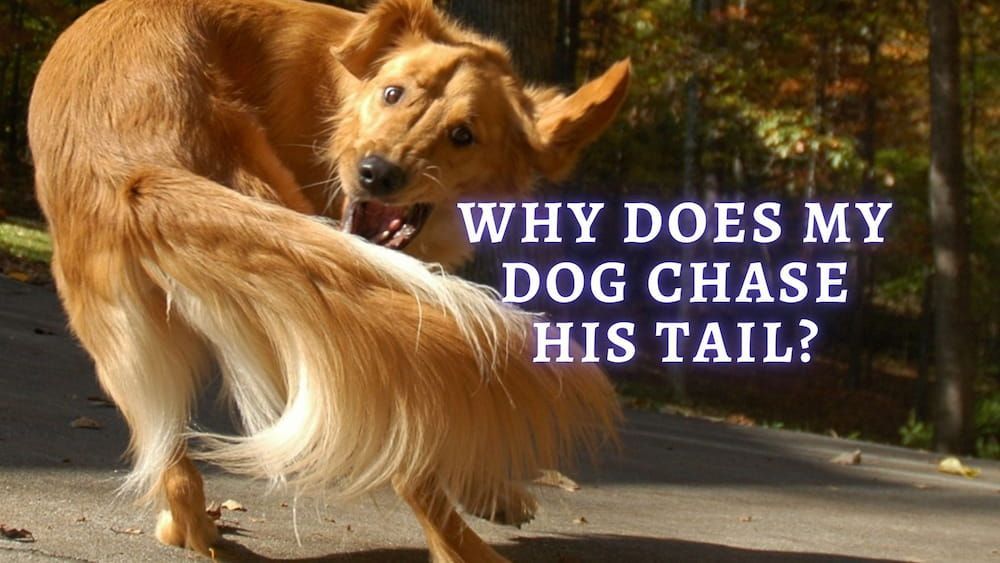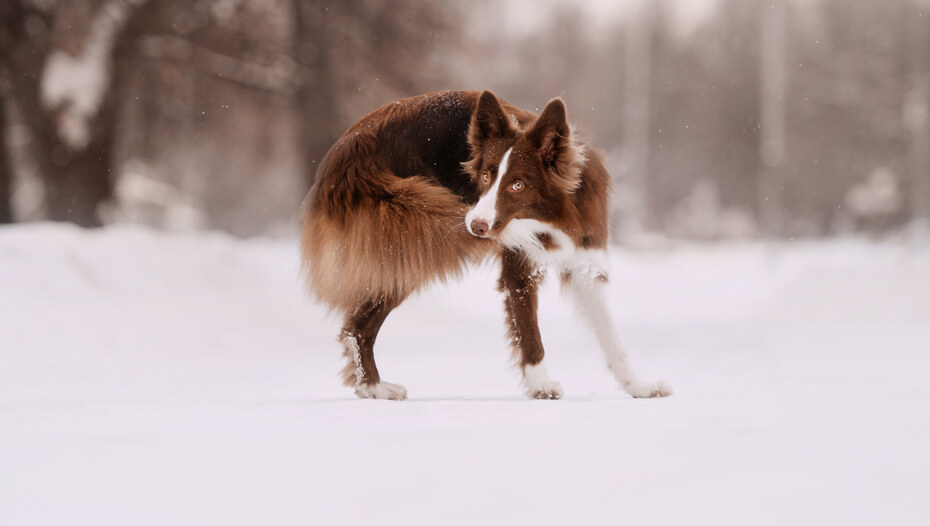
Why Does My Dog Chase Her Tail After Eating. Some of the most common environmental allergens include mold pollen or household chemicals. Dogs may also have a food allergy with some dogs being allergic to poultry wheat potatoes or even some types of vegetables. Fleas and ticks are common reasons that your dog might chase their tail and biting their back end. Compulsive tail-biting can also be caused by canine compulsive disorder CCD says Dr.

If your dog is biting its tail it may be because it is suffering from environmental or food allergies. In other words they can chase their tails due to an underlying mental illness that causes them to unnecessarily chew bite and chase their tail. Here are a few of the most common. But if you notice your dog is catching its tail and chewing on it regularly it might be a sign that something is wrong with your dog. If you notice your dog really going after her tail a lot and trying to nip at it and chew on it you may want to schedule a trip to the vet. This behavior might begin with your dog chasing his or her tail after a physical injury or due to itching.
He took off at work one day after a squirrel.
Extreme cases can cause unhealthy weight loss as your dog skips meals to spin as well as exhaustion from constant activity and painful sores from biting her tail when she catches it. Just like obsessive compulsive disorder OCD can manifest in humans as obsessive cleaning or counting CCD in dogs can lead to compulsive tail-chasing fur-licking or fabric-sucking. Here are a few of the most common. Dogs who chase their tails often do so from anxiety overexcitement boredom or an underlying medical problem. Dogs may also have a food allergy with some dogs being allergic to poultry wheat potatoes or even some types of vegetables. Since it is a comforting exercise the behavior becomes a habitual response to any other threat that may occur after the dog has healed or the itching stopped.